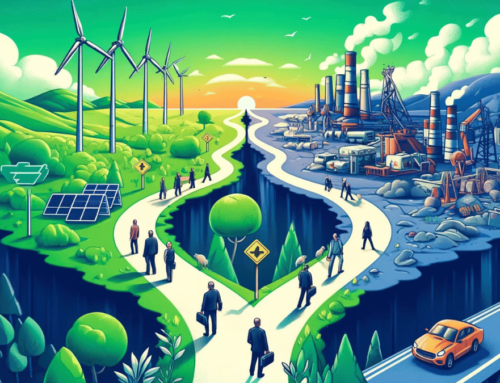Biotechnology is rapidly transforming energy markets across the world and influencing energy prices.
This article provides an in-depth look at how biotechnology affects energy costs, including advantages, disadvantages, and potential regulatory policies for future use.
How Does Biotechnology Impact Global Energy Markets?
Biotechnology is a major game-changer in the global energy market. It offers new renewable and clean energy options, making it more attractive to producers and consumers alike. It also reduces emissions, puts the planet on a sustainable path, and helps protect against climate change.
Additionally, biotechnology can lower energy costs by increasing efficiency and reducing dependence on non-renewable sources of energy.
What Are the Benefits and Risks of Increased Biotechnology Use in Energy Production?
While biotechnology has allowed us to explore renewable and clean energy sources, it is not without risks. Biotechnology processes often require huge amounts of land to be dedicated to energy production and can impact ecosystems.
There is also potential for greater water pollution from the use of genetically modified plants or animals and the runoff of chemicals used in the production process.
Lastly, biotechnology could increase vulnerability due to the number of interconnected devices involved in production processes.
What Innovations Has Biotechnology Brought to the Global Energy Market?
Biotechnology has been instrumental in introducing new technologies to the global energy market. These innovations can improve safety, cost-efficiency, and sustainability of energy production.
For example, biopesticides are cheaper and safer alternatives to traditional chemical pesticides as they do not affect wildlife or humans in the same way.
Furthermore, genetic engineering has enabled more efficient ways of converting biomass into biofuels which in turn reduces greenhouse gas emissions and provides a renewable energy source for generations to come.
Is Biotechnology Helping or Hurting Our Environment?
Biotechnological applications can both help and hurt our environment. On the one hand, biotechnology has enabled clean and sustainable energy sources, however, these technologies also involve potential environmental risks.
For example, increasing the use of genetically modified organisms can lead to the spread of resistant traits that compete with native species for resources and can affect food production systems.
That’s why it is important to consider any possible long-term impacts before introducing new technology into our environment.
What Role do Governments Play in Regulating and Using Biotechnology for Energy Production?
Governments around the world are increasingly focusing on how to most effectively use biotechnology for energy production.
This includes investing in research and development, creating standards and regulations for the safe operation of biotechnological processes, and providing incentives or subsidies for biotechnology companies.
This can help ensure that new technologies are safe and effective, and can also help create a competitive business environment that encourages innovation.

David Rewcastle of Darien, Connecticut, is an Equity and Fixed Income Analyst with a background in Finance and Middle East Studies






Leave A Comment